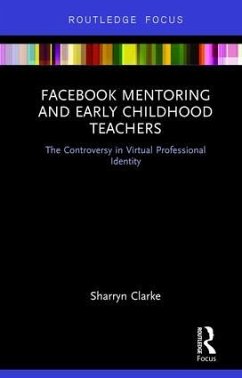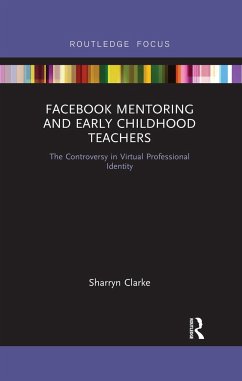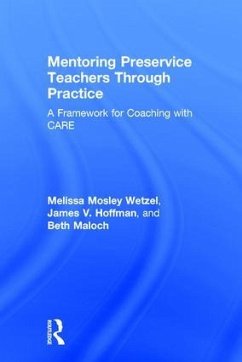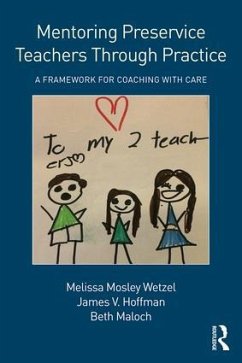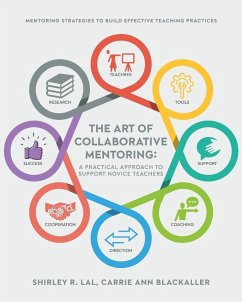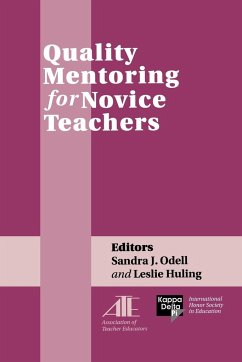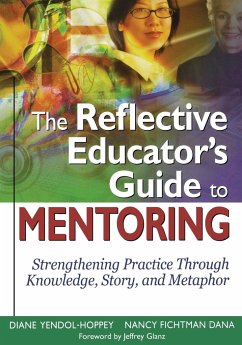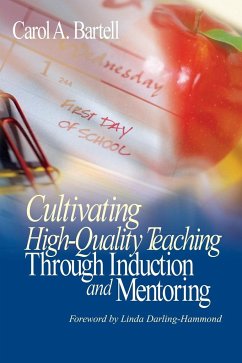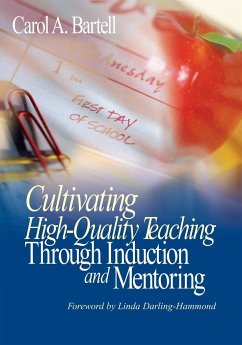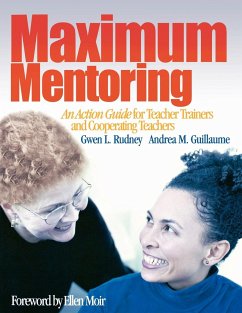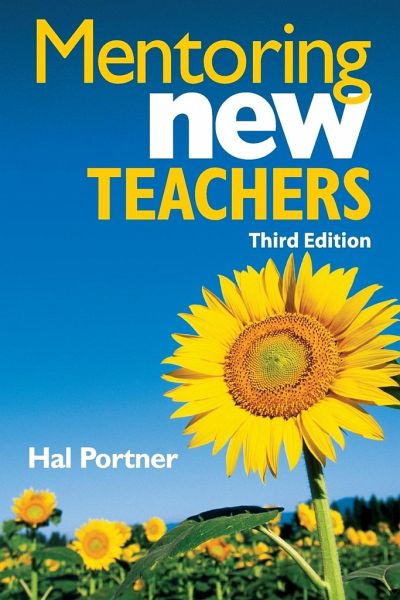
Hal Portner
Broschiertes Buch
Mentoring New Teachers
Versandkostenfrei!
Versandfertig in 1-2 Wochen

PAYBACK Punkte
15 °P sammeln!




A comprehensive guide for developing successful mentors! In the latest edition of this bestseller, the author draws upon research, experience, and insights to provide an overview of essential mentoring behaviors. Packe
Hal Portner is a former K-12 teacher and administrator. He was assistant director of the Summer Math Program for High School Women and Their Teachers at Mount Holyoke College, and for 24 years he was a teacher and then administrator in two Connecticut public school districts. From 1985 to 1995, he was a member of the Connecticut State Department of Education's Bureau of Certification and Professional Development, where, among other responsibilities, he served as coordinator of the Connecticut Institute for Teaching and Learning and worked closely with school districts to develop and carry out professional development and teacher evaluation plans and programs. Hal developed and teaches for Western New England University a 3 credit MEd in Curriculum and Instruction online core course in Mentoring, Coaching, and professional development. Portner writes, develops materials, trains mentors, facilitates the development of new teacher and peer-mentoring programs, and consults for school districts and other educational organizations and institutions. In addition to Mentoring New Teachers, he is the author of Training Mentors Is Not Enough: Everything Else Schools and Districts Need to Do (2001), Being Mentored: A Guide for Protégés (2002), Workshops that Really Work: The ABCs of Designing and Delivering Sensational Presentations (2005), and editor of Teacher Mentoring and Induction: The State of the Art and Beyond (2005) - all published by Corwin Press. He holds an MEd from the University of Michigan and a 6th-year Certificate of Advanced Graduate Study (CAGS) in education administration from the University of Connecticut. For three years, he was with the University of Massachusetts EdD Educational Leadership Program.
Produktdetails
- Verlag: Corwin
- Seitenzahl: 170
- Erscheinungstermin: 25. April 2008
- Englisch
- Abmessung: 229mm x 152mm x 9mm
- Gewicht: 256g
- ISBN-13: 9781412960090
- ISBN-10: 1412960096
- Artikelnr.: 23514702
Herstellerkennzeichnung
Libri GmbH
Europaallee 1
36244 Bad Hersfeld
gpsr@libri.de
Für dieses Produkt wurde noch keine Bewertung abgegeben. Wir würden uns sehr freuen, wenn du die erste Bewertung schreibst!
Eine Bewertung schreiben
Eine Bewertung schreiben
Andere Kunden interessierten sich für




